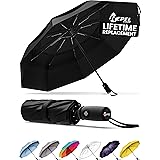When planning your dream Italian getaway, you might be taken aback by one peculiar rule about heating and air conditioning that affects hotels throughout the country. Due to both environmental sustainability efforts and recent geopolitical tensions, Italy enforces strict regulations on temperature controls in public buildings, including hotels. This means during your stay, air conditioners won’t drop below 77 to 81 degrees Fahrenheit, and heaters won’t rise above 66 to 70 degrees Fahrenheit. Don’t worry, though! There are plenty of ways to stay comfortable, like bringing breathable pajamas for summer or requesting extra blankets during winter. By understanding these unique regulations and preparing accordingly, you can enjoy your Italian adventure to the fullest without any climate control surprises.
The Odd Heat And AC Rule Tourists Staying At A Hotel In Italy Must Know Before Visiting
Have you ever wondered about the unique quirks you’ll encounter while traveling to different countries? If Italy is on your list, you may be surprised to learn about the peculiar temperature regulations in hotels. Yes, Italy, renowned for its breathtaking architecture, rich history, and delectable cuisine, also has some interesting rules regarding heating and air conditioning in its hotels. Buckle up, and let’s dive into this odd yet essential aspect of your Italian adventure!

Shop These Accessories for a Comfortable Trip
Italy’s Extreme Weather Patterns
Italy offers a stunning variety of landscapes and climates. The same country where you could be basking on a sandy Mediterranean beach can also have you shivering in snowy mountain villages. Italy’s weather dramatically shifts from hot summers to chilly winters, especially in the northern regions. But hold on, why does this matter for you as a tourist?
Summer Heatwaves
Italy has been experiencing increasingly scorching summer heatwaves in recent years. It’s not uncommon for temperatures to soar well above comfortable levels, making air conditioning a coveted amenity.
Winter Cold Snaps
Conversely, winters, particularly in the mountainous northern regions, can bring freezing temperatures. You might be tempted to crank up the heater, but here’s where the unique regulations come into play.
The Odd Rule Explained
The surprising fact is that Italian hotels operate under strict government regulations regarding heating and air conditioning. These rules are designed to limit energy consumption and promote sustainability. Here’s the lowdown:
Air Conditioning Limits
Air conditioners in public buildings, including hotels, are usually not allowed to be set lower than 77 to 81 degrees Fahrenheit. That’s quite a bit warmer than what you may be used to, especially if you come from a place with unrestrictive climate regulation.
Heating Restrictions
When it comes to heating, you’re looking at a maximum setting of 66 to 70 degrees Fahrenheit. This means your room won’t get toasty warm; rather, it will just take the edge off the cold.
Shop These Accessories for a Comfortable Trip
Why Italy’s Heat and AC Rule Exists
Would you believe that these rules are not entirely new? Italy has had some form of regulation for years, primarily aimed at environmental sustainability and energy conservation. However, recent global events have pushed the country to tighten these measures.
Impact of the Russia-Ukraine Conflict
The conflict between Russia and Ukraine sent energy prices soaring. Italy decided to mitigate the situation by placing stricter limits on heating and cooling, including reducing reliance on Russian gas. These regulations became more stringent in 2022, limiting the use of heaters and air conditioners even further.
Sustainability Goals
The energy restrictions also stem from a broader goal of promoting more sustainable living. By curbing the use of heaters and air conditioners, Italy aims to reduce its carbon footprint and conserve valuable energy resources.
What This Means for Tourists
So, you’re planning your stay in an Italian hotel. What should you expect, and how can you make your stay more comfortable given these quirky temperature regulations?
Adherence to Rules
Many hotels adhere strictly to these government-imposed restrictions. However, accommodations can vary, with some offering more flexible climate control options, especially in private rooms.
Individual Control
Don’t lose hope just yet! Some hotels, such as those under the IHG Hotels & Resorts banner, still allow guests to control the temperatures in their rooms within certain limits. Shared spaces like lobbies and gyms, though, will follow the stricter regional guidelines.

Tips for Staying Comfortable
We’ve got you covered with some essential tips to make your stay cozy, regardless of the season.
Summer Tips
Navigating through a scorching Italian summer without dropping the AC below 77 degrees might seem daunting, but it’s manageable.
- Light Pajamas: Opt for breathable, lightweight pajamas to keep cool at night.
- Open Windows: If permissible, open the windows in your room to let in some cooler night air.
- Stay Hydrated: Stock up on water. Many fountains in Italy dispense potable water, so keep those bottles filled.
- Portable Fans: Consider bringing a portable fan or requesting one from the hotel to boost air circulation.
Winter Tips
Dealing with a chilly room in winter calls for some creative strategies.
- Extra Blankets: Don’t hesitate to ask the hotel for more blankets to keep warm.
- Warm Beverages: A hot cup of espresso or tea can be a lifesaver to fight the cold.
- Layer Up: Wear multiple layers of clothing and wrap up even when just lounging around.
- Heating Pads: You might want to consider bringing heating pads for added warmth.
When to Travel for Optimal Comfort
Timing your trip can also significantly influence your comfort levels. Here’s a quick guide on the best times to visit:
Best Times for Warm Weather Lovers
Late spring (May to June) and early autumn (September to October) usually offer pleasant weather, avoiding the extremes of summer and winter.
| Month | Average Temperature (°F) | Notes |
|---|---|---|
| May-June | 70-80 | Warm but not overly hot |
| September | 70-80 | Pleasant with diminishing summer heat |
| October | 60-70 | Mild and comfortable |
Best Times for Cooler Weather Enthusiasts
If you love a bit of chill, but not freezing cold, late autumn (November) or early spring (March to April) might be your best bet.
| Month | Average Temperature (°F) | Notes |
|---|---|---|
| March-April | 50-60 | Cool but generally mild |
| November | 50-60 | Cool, with some crispness in the air |
Special Cases and Exceptions
While these rules are generally enforced, there are exceptions and special cases that you may encounter.
High-End Hotels
Luxury hotels, particularly those catering to international tourists, may offer more flexibility despite the regulations. It’s always a good idea to check in advance.
Different Regions, Different Rules
Not all parts of Italy enforce the regulations uniformly. For example, colder areas like the mountainous regions may allow more heating access, whereas warmer coastal areas might provide more lenient AC settings.
Colder Regions
| Region | Additional Heating Allowed | Special Considerations |
|---|---|---|
| Piedmont | Yes | Known for cold winters, extra heating common |
| Valle d’Aosta | Yes | Mountainous, often colder, extra heating |
Warmer Regions
| Region | Additional Cooling Allowed | Special Considerations |
|---|---|---|
| Sicily | Yes | Extremely hot summers, more AC leniences |
| Sardinia | Yes | Hot, especially in peak summer |
What to Do Before Booking
To ensure you have a pleasant stay, a bit of planning goes a long way. Here are some steps you can take:
Contact the Hotel
Before finalizing your booking, reach out to the hotel directly. Ask about their heating and air conditioning policies, specifically in guest rooms. This can save you from unpleasant surprises later.
Check Reviews
Guest reviews can be a goldmine of information. Look for comments about room temperatures and how well the hotel manages comfort amidst the restrictions.
Flexibility in Itinerary
Being flexible with your itinerary allows you to pivot based on the weather forecasts and regional temperature regulations. Consider booking accommodations that offer free cancellations or changes.
Conclusion
Traveling to Italy presents a fascinating blend of old-world charm, modern luxury, and yes, peculiar temperature regulations. By understanding and preparing for these heating and cooling rules, you can ensure that your stay is as comfortable as possible while immersing yourself in all that Italy has to offer. So go ahead, pack wisely, plan ahead, and get ready for an unforgettable Italian adventure!
If you have any more questions or need further advice on navigating these unique rules, feel free to ask. Buon viaggio and enjoy your stay in beautiful Italy!






